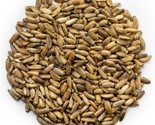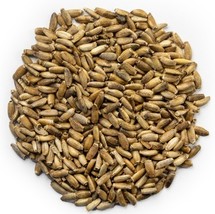Rendered at 23:42:20 05/06/25
Free Shipping
MRH - Dried Milk Thistle Seed Organic Kosher - 4oz.
$16.99
Shipping options
Estimated to arrive by Wed, May 21st.
Details
FREE via USPS Ground Advantage (1 to 10 business days) to United States
Return policy
Full refund available within 30 days
Purchase protection
Payment options
PayPal accepted
PayPal Credit accepted
Venmo accepted
PayPal, MasterCard, Visa, Discover, and American Express accepted
Maestro accepted
Amazon Pay accepted
Nuvei accepted
Shipping options
Estimated to arrive by Wed, May 21st.
Details
FREE via USPS Ground Advantage (1 to 10 business days) to United States
Return policy
Full refund available within 30 days
Purchase protection
Payment options
PayPal accepted
PayPal Credit accepted
Venmo accepted
PayPal, MasterCard, Visa, Discover, and American Express accepted
Maestro accepted
Amazon Pay accepted
Nuvei accepted
Item traits
| Category: | |
|---|---|
| Quantity Available: |
10 in stock |
| Condition: |
New |
| Brand: |
Mountain Rose Herb |
Listing details
| Seller policies: | |
|---|---|
| Shipping discount: |
Seller pays shipping for this item. |
| Price discount: |
10% off w/ $50.00 spent |
| Posted for sale: |
More than a week ago |
| Item number: |
1711910494 |
Item description
Botanical Name: Silybum marianum is an annual in the Asteraceae family that grows three to seven feet tall with lettuce-like leaves and spikey, purple flowers. The plant has been used for centuries as a food and for its healthful properties. Milk thistle seed has a long tradition of use in western herbalism and is typically decocted as milk thistle tea. It can also be powdered for tinctures or encapsulated. Milk thistle has been revered for thousands of years as an effective herb. However, early on all parts of the plant were used for a variety of purposes. The leaves were extensively utilized and often eaten as a vegetable.
Milk thistle supports the liver's natural detoxification process.*
Silybum marianum grows as an annual or biennial from three to seven feet in height, has smooth, shiny, lettuce-like leaves with white veins and spines along the margins, and a solitary purple flower that can grow up to two and a half inches in diameter. It is native to the Mediterranean region and southwestern Europe and has been widely cultivated for hundreds of years. In the U.S, it is considered a noxious weed in several states, particularly in the Pacific Northwest in states such as Washington. It is a member of the vast sunflower or Asteraceae family, which encompasses a wide variety of well-known plants such as lettuce (Lactuca sativa), the common daisy (Bellis perennis), the blessed thistle (Cnicus benedictus), and artichoke (Cynara cardunculus var. scolymus), to name a few. Harvest seeds by cutting off flower heads at the end of the growing season, often May-July, when white cottony fibers (pappus) appear. Dry flower heads in a warm, sunny place for around a week. Put in a burlap bag and tumble the bag around. Then chop the flower heads to remove seeds, and winnow in the open air.
Nicholas Culpepper, the 17th century botanist, avid astrologer, physician, herbalist, and author of the Complete Herbal (1653 CE), also concluded that both milk thistle and blessed thistle shared similar qualities. Culpepper, alongside many other herbalists of the time, also recommended boiling the young, tender plant as it had virtue as a spring tonic or alterative. During those times it was often eaten like boiled cabbage (after removing the spines, of course). The flowerheads, similar and related to the artichoke, were eaten as well. All parts of the milk thistle plant were utilized, including the root. Eventually, milk thistle seeds were incorporated into the Eclectics practice (physicians who practiced a branch of American medicine popular in the 1800-early 1900's which made use of botanical remedies) as a remedy for "congestion of the liver, spleen, and kidneys.”
Precautions
Milk thistle may cause an allergic reaction in people who are sensitive to the Asteraceae (Ragweed) plant family. We recommend that you consult with a qualified healthcare practitioner before using herbal products, particularly if you are pregnant, nursing, or on any medications.
Added to your wish list!

- MRH - Dried Milk Thistle Seed Organic Kosher - 4oz.
- 10 in stock
- Handling time 5 days. Estimated delivery: Wed, May 21st
- Returns/refunds accepted
Get an item reminder
We'll email you a link to your item now and follow up with a single reminder (if you'd like one). That's it! No spam, no hassle.
Already have an account?
Log in and add this item to your wish list.










